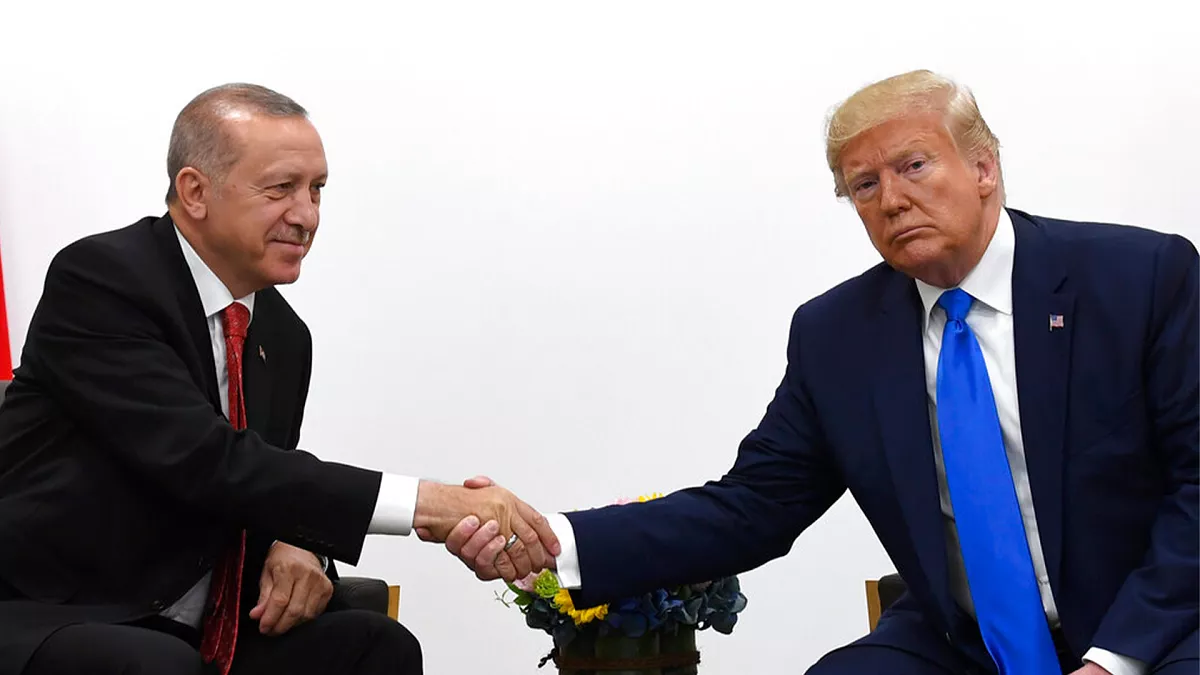Could Trump’s Return Ease F-35 Sanctions?


As Donald Trump reenters the political arena following his recent electoral victory, discussions are intensifying regarding the potential impacts on U.S. foreign policy, particularly concerning military sales and sanctions, including those related to the F-35 fighter jet program. The F-35 program, a joint initiative involving several NATO allies, has been at the center of geopolitical tensions, particularly concerning Turkey, which has faced sanctions from the U.S. due to its procurement of Russian S-400 missile systems.
During his previous presidency, Trump adopted a more transactional approach to foreign policy, often emphasizing the importance of bilateral relationships over multilateral commitments. Analysts speculate that his return to power could result in a shift in the current sanctions regime affecting Turkey and potentially other nations involved in the F-35 program. Under the Biden administration, strict sanctions were imposed on Turkey, which hindered its ability to participate in the F-35 program and affected its defense procurement strategy.
Trump’s administration had previously indicated a willingness to negotiate with Turkey regarding its defense purchases, and there is a possibility that he could reinstate a more lenient stance on the sanctions imposed. His approach could involve leveraging Turkey’s geopolitical position as a NATO ally while navigating the complexities of its relationship with Russia. Many experts believe that easing sanctions could lead to Turkey’s re-engagement with the F-35 program, allowing it to procure the advanced fighter jets it has sought.
However, any potential easing of sanctions would not be without its challenges. Congressional leaders from both parties have expressed concerns over Turkey’s previous actions, including its military operations in Syria and its alignment with Russia. As such, Trump may face pushback from lawmakers who are wary of appearing to reward Turkey for its controversial defense policies. This dynamic could complicate efforts to ease sanctions or reintegrate Turkey into the F-35 program.
Moreover, Trump’s return could reignite debates within NATO regarding defense spending and burden-sharing. Trump has previously called on NATO allies to increase their military expenditures, which may influence Turkey’s defense spending decisions moving forward. As discussions evolve, the future of the F-35 program remains uncertain, particularly in light of the potential for changing U.S. foreign policy dynamics under a Trump presidency.
In conclusion, while Trump’s return could potentially lead to a relaxation of F-35 sanctions against Turkey, the complexities of U.S.-Turkey relations and bipartisan concerns over defense policies will play a significant role in shaping future decisions. As the political landscape continues to shift, stakeholders will be closely monitoring the implications for the F-35 program and international defense collaboration.
Recent Posts
Macbor Montana XR5 510 Review: A Reliable Off-Road Motorcycle
The Macbor Montana XR5 510 has garnered attention in the off-road motorcycle market, offering a…
Preparing for the European Cross Country Championship: Athletes Gear Up for the Challenge
The excitement is building as athletes across Europe prepare for the upcoming European Cross Country…
Sam Sunderland: Preparing for the Dakar Rally is More Enjoyable Than Racing It
Sam Sunderland, the British rider, shared his thoughts on the preparation process for the Dakar…
© TVS RTS X Supermoto Launch
TVS Motor Company has officially unveiled its latest addition to the supermoto category, the TVS…
2025 KTM 250 XC-W Review: The Ultimate Off-Road Companion
The 2025 KTM 250 XC-W is a top contender in the off-road motorcycle market. Known…
CFMoto CF-X Konsepti İncelemesi: Yeni Nesil Motorsporlarının Geleceği
CFMoto, motosiklet dünyasında heyecan verici yeniliklere imza atan markalardan biri olarak dikkat çekiyor. Son olarak…